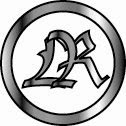1. Research book printing companies to
compare prices and options if you are planning on keeping an
inventory on hand. Otherwise, research print-on-demand (POD)
companies.
- Personally, I have printed inventory with Morris Publishing and BookMasters and have found good and bad qualities with each. Morris Publishing was easy to work with and shipped the books within three months (a very standard time frame in the book printing industry). However, they do not offer matte covers which I've found to be more durable, and they only offer white paper options. BookMasters was extremely difficult to work with, but produced beautiful matte covered books with cream colored pages. They were also able to shrink wrap each individual book for an extra charge.
- Having kept inventories and researched POD companies, I believe POD has some distinct advantages. I especially liked the look of Createspace (https://www.createspace.com/) by Amazon.com. They have an option to make your book available for free and they pay you royalties on copies sold.
2. Obtain an ISBN.
- Bowker.com is the official distributor of ISBNs. If you purchase them anywhere else, they will already be listed with Bowker as belonging to someone other than you. There is no way to change who an ISBN belongs to.
- Bowker.com offers ISBNs on their website (http://isbn.org/standards/home/index.asp) in sets of 10, 100, and 1000, etc. You may also purchase a single ISBN.
- You will also have the option to purchase bar codes through Bowker.com. It is important to know how much your book will cost when purchasing your bar code, as this information is included on the bar code.
3. Obtain a Library of Congress Control
Number (LCCN)
- Use this website, http://pcn.loc.gov/ to access the Preassigned Control Number Program of the Library of Congress. You will need a LCCN if you are planning to market your book to libraries and book dealers. Don't forget to send them a copy of your book once it's in print. This could lead to being kicked out of the PCN program.
4. Edit, edit, and edit your
manuscript. Then find someone else who is willing to do the same –
preferably someone who works with the written word on a daily basis.
It is always a good idea to consider hiring a professional editor.
It's money well spent if it helps you produce a book free of
grammatical errors and typos.
5. Obtain an official copyright of your
title once it has come through it's final round of edits.
6. Read “The Complete Guide to
Self-Publishing” by Marilyn Ross and Sue Collier for advice for
every step of the publishing process, including many tips for
marketing your title.
7. Design a cover and/or interior
illustrations, or hire a graphic designer to do it for you.
8. Leave time between production and
publication timelines to send out review copies to potential
reviewers. Reviewers typically require three months lead time.
9. Research and pitch reputable book
distributors such as Baker & Taylor or Ingram.
10. Be prepared to really market
yourself. Develop a pitch for newspapers, magazines, tv, radio, etc.
Look for opportunities to do book signings, and highlight why your
book is relevant, different and needed by potential buyers.



